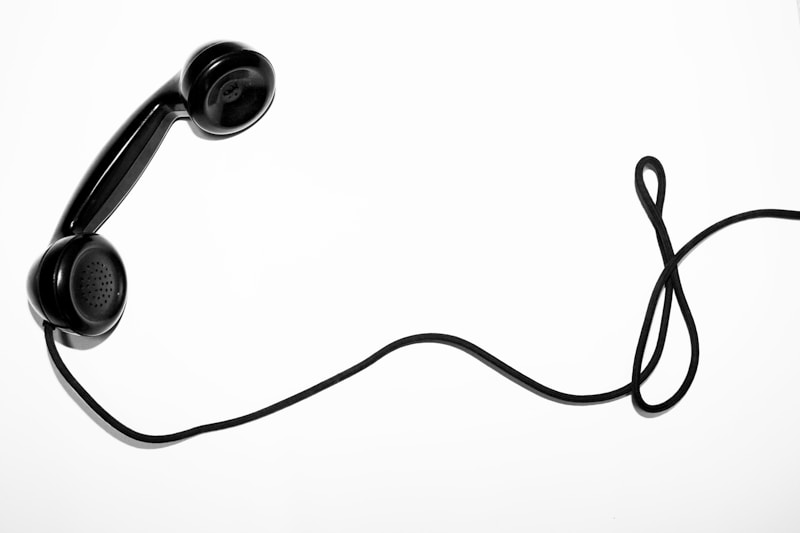Effective Communication Techniques for Bridal Service: Ensuring a Memorable Experience
Effective Communication Techniques for Bridal Service: Ensuring a Memorable Experience
Weddings are one of the most significant events in a person's life, and the role of bridal service providers in this deeply emotional journey cannot be overstated. Effective communication techniques are critical for bridal service professionals to understand and meet the needs of brides and their families. In this article, we will explore essential communication techniques tailored for bridal services, discuss their importance, and provide best practices for a successful bridal service experience.
Understanding the Importance of Communication in Bridal Services
Effective communication is the cornerstone of any successful service-oriented business, particularly in the bridal industry. The stakes are high, as brides often have dreams and expectations that can feel overwhelming. To help mitigate stress and ensure that everything runs smoothly, bridal service providers must employ various communication techniques. Here are a few reasons why communication is vital:
- Building Trust: Open and honest communication fosters trust between brides and service providers.
- Identifying Needs: Understanding a bride’s vision requires active listening and empathy.
- Managing Expectations: Clear communication helps set realistic expectations, reducing the likelihood of misunderstandings.
- Enhancing Satisfaction: A well-communicated service enhances overall satisfaction and can lead to referrals.
Effective Communication Techniques for Bridal Service Providers
1. Active Listening
Active listening is about fully concentrating on what the bride is saying, rather than just passively hearing the words. By practicing active listening, bridal service providers can:
- Show empathy and understanding.
- Ask clarifying questions to ensure they grasp what the bride envisions.
- Provide feedback that assures the bride they are understood.
2. Non-Verbal Communication
Bridal service providers should also be aware of their body language, facial expressions, and posture. Non-verbal cues are powerful indicators of trustworthiness and openness. Here are some tips:
- Maintain eye contact to show engagement.
- Use open body language to invite conversation.
- Be mindful of tone and pace of voice, which can convey enthusiasm or uncertainty.
3. Clear and Concise Messaging
When discussing details such as contracts, timelines, and costs, clarity is key. To avoid misunderstandings, providers should:
- Use simple language, avoiding industry jargon.
- Summarize key points at the end of conversations.
- Provide written communication for important points, including follow-up emails or texts.
4. Personalization
Each bride is unique, and communication should reflect that. Tailoring messages according to the bride’s personality and preferences can enhance the connection. For instance:
- Use the bride’s name frequently to create a personal touch.
- Ask about her inspirations and preferences to show genuine interest.
- Share stories or examples that resonate with her vision.
5. Regular Follow-Ups
A wedding timeline can be hectic, so keeping communication lines open is essential. Regular follow-ups can help build rapport and keep the bride informed. This can be achieved through:
- Scheduling weekly check-ins via phone or email.
- Sending reminders about upcoming appointments or decisions needed.
- Creating a checklist together to ensure all bases are covered.
Table: Key Techniques for Effective Communication in Bridal Services
| Technique | Description |
| Active Listening | Fully engaging with what the bride is saying to understand her needs. |
| Non-Verbal Communication | Acknowledging body language and expressions to reinforce understanding. |
| Clear Messaging | Using straightforward language to convey important information. |
| Personalization | Tailoring communication to fit the bride’s unique preferences. |
| Regular Follow-Ups | Keeping in touch to ensure ongoing support and reassurance. |

Adapting to the Bride's Emotional Needs
Weddings can be emotionally charged, and understanding how to address the bride's feelings is crucial. Effective communication involves being sensitive to her emotions:
- Offer support and reassurance, especially during difficult decisions.
- Recognize when she might need a moment to process information.
- Respond empathetically to any fears, doubts, or concerns she may express.
Utilizing Technology for Enhanced Communication
In today's digital age, technology plays a pivotal role in communication. Bridal service providers can utilize various tools to stay connected with brides. Consider the following:
- Email and Text: Efficient for quick updates and reminders.
- Social Media: Platforms like Instagram can showcase past work and build rapport.
- Video Calls: A great way to meet face-to-face for consultations when in-person meetings aren't possible.
Summary and Recommendations
Effective communication is pivotal in delivering exceptional bridal services. By employing techniques like active listening, personalization, and regular follow-ups, service providers can exceed brides' expectations. Excelling in communication not only enhances the bride’s experience but also contributes to the provider's reputation and referrals.
Keep the following tips in mind:
- Practice active listening and make an effort to understand the bride’s needs.
- Tailor your communication style to create a personalized experience.
- Maintain open lines of communication throughout the planning process.
- Embrace technology to facilitate updates and showcases of your work.
In conclusion, as you embrace these effective communication techniques for bridal service, remember that every interaction is an opportunity to build a lasting relationship and deliver an unforgettable wedding experience. After all, the bride deserves nothing less than perfection on her special day!
